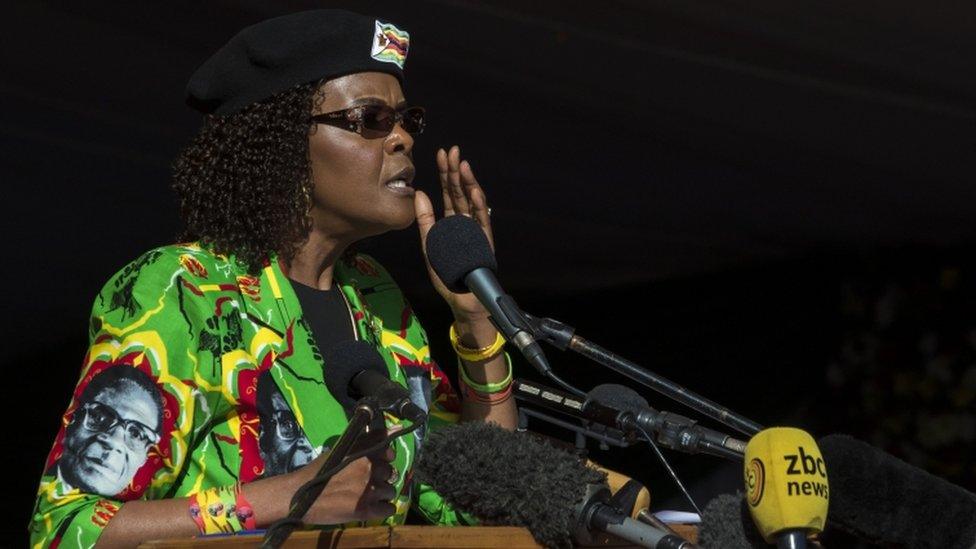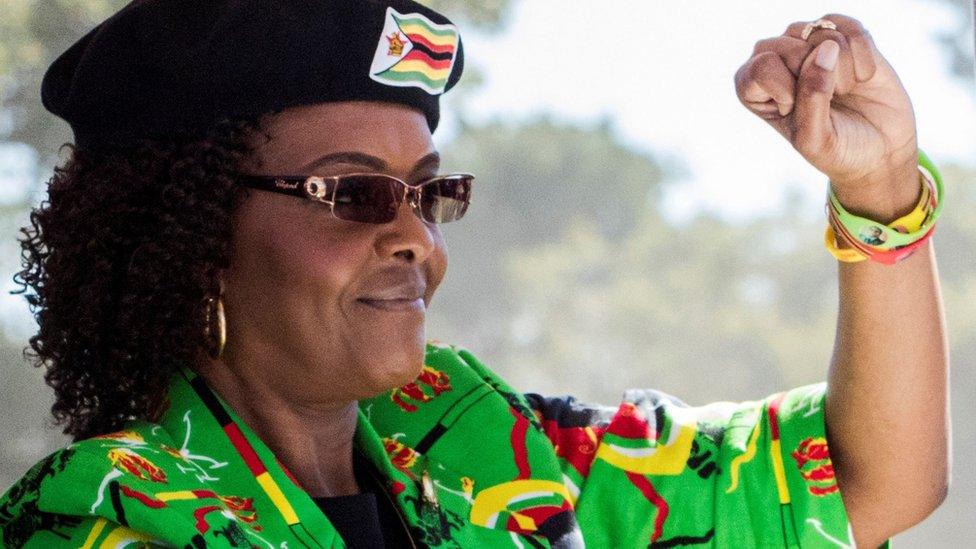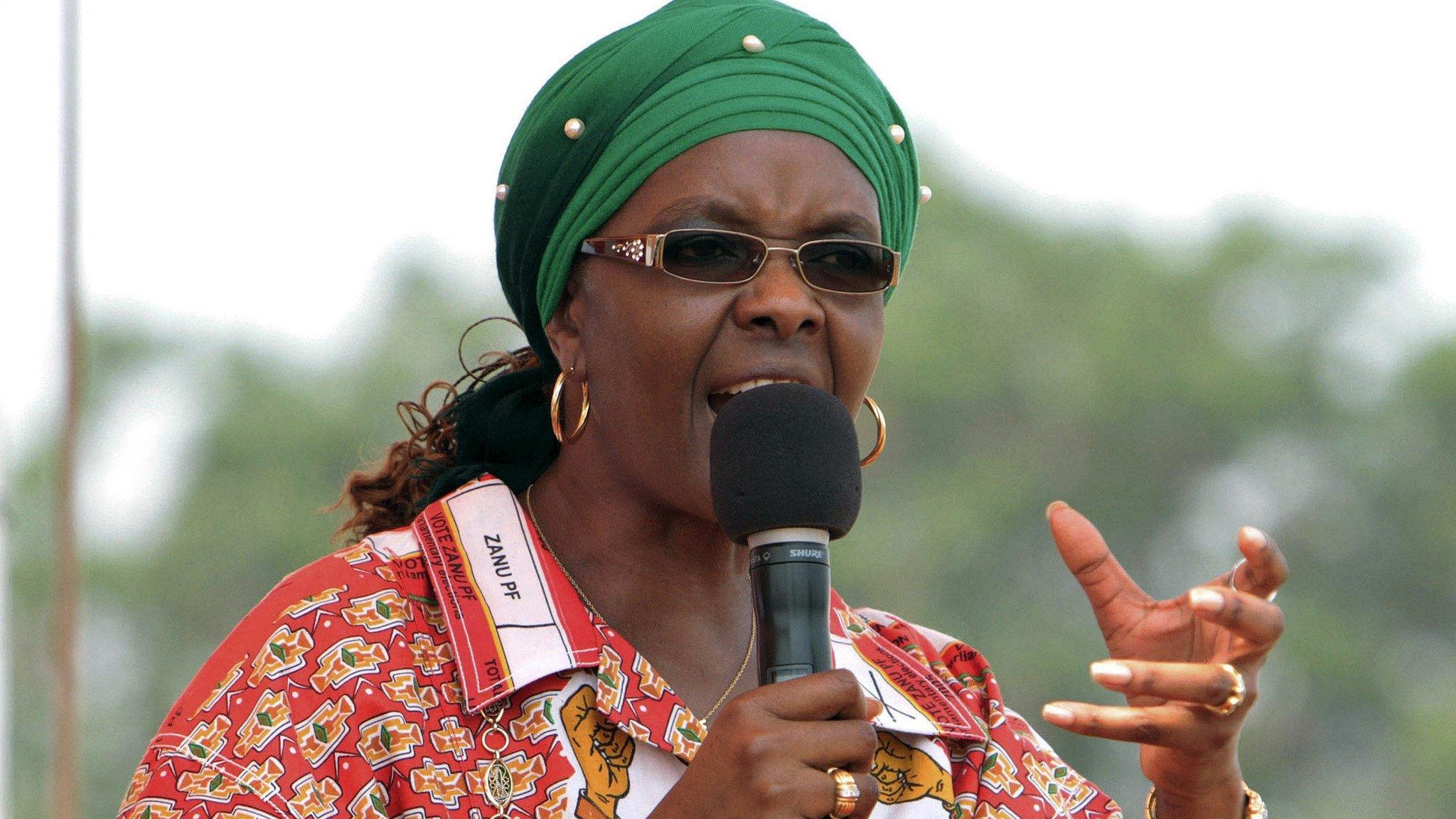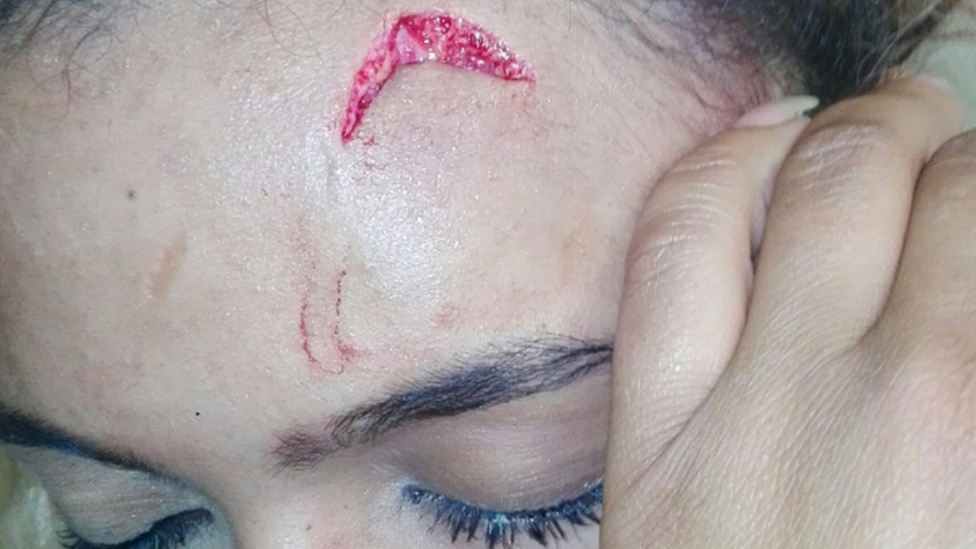Grace Mugabe's alleged victim in bid to annul immunity
- Published

Mrs Mugabe is accused of hitting a model with an extension cable
The woman who has accused Zimbabwe's First Lady Grace Mugabe of assaulting her has mounted a legal challenge against the South African government for giving her diplomatic immunity.
Gabriella Engels said in court papers that a head of state, let alone a first lady, failed to qualify for immunity when accused of a serious crime.
Mrs Mugabe left South Africa on Sunday.
She has not commented on Ms Engels' allegation that she "beat the hell out of me" in a Johannesburg hotel.
The South African Police Service (SAPS) investigated the alleged assault, which took place on 13 August.
But they failed to charge the first lady after President Robert Mugabe's government claimed diplomatic immunity on her behalf.
South Africa's International Relations Minister Maite Nkoana-Mashabane said she had "agonised" about granting Mrs Mugabe immunity.
She agreed to the request after taking into account "legal considerations" and the need to main "inter-governmental relations" with Zimbabwe, Ms Nkoana-Mashabane said.
In papers filed in the High Court in the capital, Pretoria, Ms Engels, a 20-year-old model, said the minster "misconstrued her powers" and her decision should be declared invalid as it "lacks legality", South Africa's privately owned Times Live news site reports, external.
Model Gabriella Engels: Grace Mugabe "beat the hell out of me"
Heads of state who killed or injured people in South Africa did not qualify for immunity under the Foreign States Immunities Act and there was therefore no way that their spouses qualified for it, Ms Engels was quoted as saying.
Lobby group AfriForum, which is representing Ms Engels, said that if the court challenge was successful, Mrs Mugabe, 52, risked prosecution if she ever returned to South Africa.
Ms Nkoana-Mashabane has not yet commented on the court challenge.
No date has been set for a hearing.
- Published22 August 2017

- Published17 August 2017

- Published16 August 2017

- Published15 August 2017
